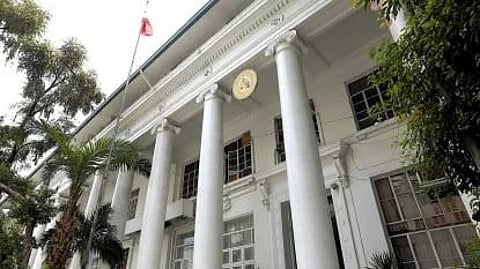
- NEWS
- the EDIT
- COMMENTARY
- BUSINESS
- LIFE
- SHOW
- ACTION
- GLOBAL GOALS
- SNAPS
- DYARYO TIRADA
- MORE

The Department of Justice (DoJ) said the International Criminal Court (ICC) cannot take “coercive actions” related to its investigation into former President Rodrigo Duterte’s war on drugs, as the Philippines is no longer a party to the treaty that established the tribunal.
DoJ Undersecretary Raul Vasquez said that while representatives of ICC can come into the country, the international tribunal cannot do certain actions such as arresting or issuing subpoenas against those involved in the drug war probe.
He said that anybody, any foreigner can come in the country but as to whether they can do certain coercive actions, that cannot be done.
Vasquez added that “once they do that, they would have to face the consequences of being dealt with by the law enforcement agencies.
“What are those coercive actions? Can the ICC make an arrest? They cannot. That would be a serious affront to our independence and sovereignty. Issue a subpoena? They’re also not allowed because we are no longer under their jurisdiction,” said Vasquez.
Then-President Duterte withdrew the Philippines from the Rome Statute, the treaty that established the International Criminal Court (ICC), in 2019 after the tribunal initiated a probe into his administration’s drug war.
Vasquez’s statement came after Justice Secretary Jesus Crispin Remulla announced that the Philippines would not obstruct the International Criminal Police Organization (Interpol) if it were called upon to implement potential arrest orders from the ICC related to individuals involved in the drug war.
Remulla stated that the government would still “study the possibilities and implications” of cooperating with Interpol on this issue.
Vasquez also noted that the involvement of Interpol in executing the ICC’s arrest orders in the Philippines “is a very fertile source of discussion.”
Additionally, the DoJ clarified that the ICC and Interpol are two separate entities.
Should the Interpol implement an arrest order in the Philippines, Vasquez said this would still undergo a process.
He said the system in place is that law enforcement units request assistance in enforcing a WOA (Warrant of Arrest) which was issued by judicial authorities of the requesting country.
If a party or country requested their counterparts to enforce that, this would undergo the proper process.
A request from the ICC to help in interviewing five persons was confirmed to have been received by Remulla.
Remulla maintained that the Philippines has no obligation to cooperate with the ICC because the country has withdrawn from the tribunal.
He reiterated that the government has not formally denied the request of the ICC but the government only took “note” of it.
